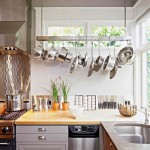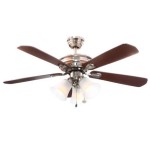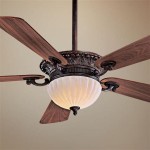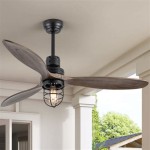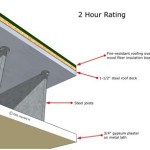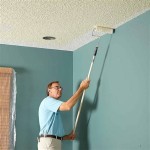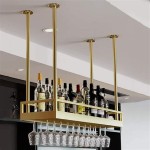72" Windmill Ceiling Fans with Light: A Comprehensive Guide
A 72" windmill ceiling fan with light offers a compelling blend of style, functionality, and impressive air circulation. These large-diameter fans are particularly well-suited for spacious rooms where smaller fans might struggle to provide adequate airflow. This article explores the key features, advantages, and considerations associated with 72" windmill ceiling fans with integrated lighting.
The "windmill" design evokes a rustic, farmhouse aesthetic, often featuring blades crafted to resemble the sails of a classic windmill. These blades, typically constructed from wood or metal, contribute to the fan's distinctive appearance. Beyond aesthetics, the blade design plays a crucial role in air movement and overall performance. The 72" diameter ensures a substantial air displacement, making these fans ideal for large living rooms, great rooms, covered patios, and commercial spaces.
Integrated lighting is a significant advantage of these fans. The light fixture, usually located centrally beneath the motor housing, provides ample illumination for the room. Different fixture designs accommodate various bulb types, including incandescent, LED, and halogen. The inclusion of a light kit eliminates the need for a separate ceiling fixture, streamlining the overall look and simplifying installation.
Motor size and power are critical factors impacting a ceiling fan's performance. A 72" fan necessitates a robust motor to effectively move the large blades and generate sufficient airflow. Consumers should look for motors with high CFM (cubic feet per minute) ratings for optimal air circulation. Additionally, multiple speed settings allow users to adjust airflow according to their needs and preferences, ranging from a gentle breeze to a powerful gust.
Control options vary across different models. Standard pull chains remain a common feature, offering simple control over fan speed and light operation. However, many 72" windmill ceiling fans now include remote controls for added convenience. Some advanced models even offer wall-mounted control panels or integration with smart home systems, allowing for automated operation and seamless integration with other smart devices.
Installation of a 72" ceiling fan requires careful planning and execution. Due to the fan's size and weight, professional installation is often recommended. Ensuring proper electrical connections and secure mounting is paramount for safety and optimal performance. Before installation, it's essential to verify that the ceiling structure can support the weight of the fan. Reinforcement might be necessary in some cases.
Material selection significantly influences the fan's durability, aesthetics, and overall cost. Blades are typically constructed from wood, metal, or engineered wood composites. Each material offers distinct advantages. Wood imparts a natural, classic look, while metal provides greater durability and resistance to warping. Engineered wood composites offer a balance of affordability and resilience.
Choosing the right finish is crucial for seamlessly integrating the fan into the room's décor. Popular finishes include various wood stains, brushed nickel, oil-rubbed bronze, and matte black. Consider the existing color palette and style of the room when selecting a finish to achieve a cohesive and aesthetically pleasing result.
Energy efficiency is an increasingly important consideration for consumers. Look for models with Energy Star certification, indicating that the fan meets specific energy efficiency standards. Efficient motors and LED light kits contribute to lower energy consumption and reduced operating costs.
Maintenance requirements for a 72" windmill ceiling fan are relatively minimal. Regular dusting of the blades helps maintain optimal performance and prevents dust buildup. Periodic inspection of the mounting hardware and electrical connections is also recommended to ensure continued safe and efficient operation.
When selecting a 72" windmill ceiling fan with light, consider factors such as room size, ceiling height, desired airflow, lighting needs, and overall style preferences. Careful consideration of these factors will ensure that the chosen fan effectively meets the specific requirements of the space and complements the existing décor.
Blade pitch, or the angle of the blades, influences the fan's ability to move air. A steeper blade pitch typically results in greater airflow. Consumers should consider the blade pitch when evaluating a fan's performance characteristics.
Noise levels are another important factor to consider, especially in areas where quiet operation is desired. Look for fans with quiet motors and well-balanced blades to minimize operational noise. Some manufacturers provide decibel ratings, allowing for a direct comparison of noise levels across different models.
Warranty information is crucial for protecting the consumer's investment. Reputable manufacturers typically offer warranties covering the motor, parts, and finish. Review the warranty terms and conditions before purchasing to understand the coverage provided and the duration of the warranty.

The 72 Windmill Fan In Noir Cage Light Kit Ebay

72 Windmill Ceiling Fan For Sale The American

Lamober Windmill 72 In Led Indoor Gold Ceiling Fans With Light And Remote Control Zy270inc20 Gd

Quorum 72 Outdoor Windmill Ceiling Fan 197215 86 9 Free Shipping Ebay

Yuhao 72 In Integrated Led Indoor Black Windmill Ceiling Fan With Dc Motor Remote Control Yh1109bk72 The Home

Lamober Windmill 72 In Led Indoor Gold Ceiling Fans With Light And Remote Control Zy270inc20 Gd

Oiled Broe Windmill Fan 72 Outdoor Cage Light Kit Ebay

Yuhao 72 In Integrated Led Indoor Black Windmill Ceiling Fan With Dc Motor Remote Control Yh1109bk72 The Home

Oiled Broe Windmill Fan 72 Outdoor Cage Light Kit Down Rod Ebay

Yuhao 72 In Integrated Led Indoor Black Windmill Ceiling Fan With Dc Motor Remote Control Yh1109bk72 The Home

